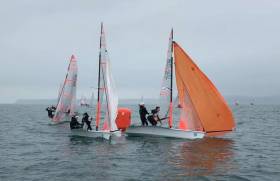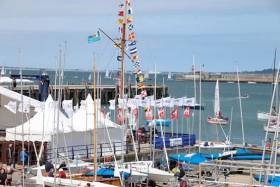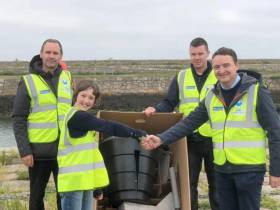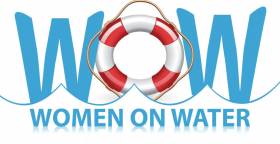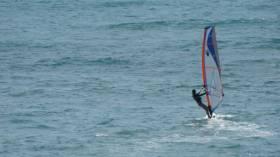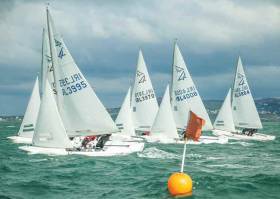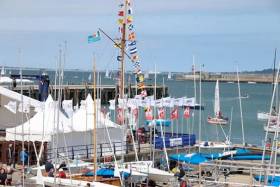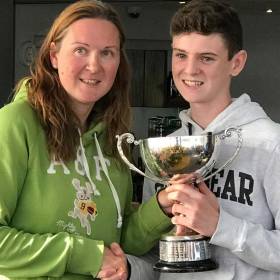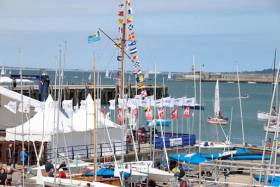Displaying items by tag: nyc
Rian Geraghty-McDonnell and Nathan Van Steenberge were first juniors and sixth overall in the Harken 29er Grand Prix at Royal Torbay Yacht Club this weekend, as Yachts & Yachting reports.
Winds and rain on the Saturday gave way to Champagne sailing conditions yesterday (Sunday 24 March) for the National Yacht Club pair who placed third in Tralee Bay the weekend before, and topped a welcome Irish contingent in Devon.
National Yacht Club Recruiting Senior Instructor
The National Yacht Club in Dn Laoghaire is currently seeking to recruit a senior instructor for 2019.
The successful candidate will lead the team of committed sailing instructors and coaches for the NYC’s summer courses.
Instructors will be responsible for the development of the club’s youngest members, a role that is taken extremely seriously by the club.
“Our instructors are of the highest quality in terms of professionalism, attitude, technical ability and passion for sailing,” said the club in a statement/
“We have a very active junior section with over 150 junior sailors. Potential candidates must have their Senior Instructor Certificate, or be in the process of completing the course.”
The closing date for applications is Monday 7 January. Interviews will take place in mid-January. For details on how to apply see the NYC website HERE.
#Seabin - Five months after local coastal litter campaigner Flossie Donnelly saw the installation of Dun Laoghaire Harbour’s first Seabin, the enterprising youth has presented the National Yacht Club with its own water-cleaning device.
According to the Dun Laoghaire waterfront club, 12-year-old Flossie’s fundraising efforts for Ireland’s first ever Seabin were so inspiring that the company behind the project donated a second device for free.
The Seabin is essentially a floating bucket with a pump that sucks in surfacedebris and traps it for collection. A single device has the potential to collect as many as 20,000 plastic bottles or more than 80,000 plastic bags each year.
Flossie’s Seabin initiative has since won some influential support from NYC stalwart Annalise Murphy, who raced around the world on board Turn the Tide on Plastic in the most recent Volvo Ocean Race.
The National Yacht Club has more on the story HERE.
Subaru to Sponsor Flying Fifteen World Championships 2019
Subaru Ireland are delighted to announce they have come on board and and are ready to set sail as the main sponsor and vehicle partner of the Flying Fifteen World Championships 2019.
Subaru also becomes a sponsor and corporate vehicle partner of the National Yacht Club in Dun Laoghaire, which will host the event from 2-13 September on Dublin Bay.
Speaking at the launch last week, held at the NYC, Commodore Ronan Beirne said: “Subaru is a quality brand, and to endorse the National Yacht Club as vehicle partner and for the Flying Fifteen World Championship hosted by the club allows us to share the Subaru brand definition of ‘Confidence in Motion’ as our members enjoy sailing and as the National Yacht Club prepares for the only World Sailing Championships to take place in Irish waters in 2019.”
Sean Dunne, director of Subaru Ireland said: “We are very proud to become a partner of the National Yacht Club and excited to be the main sponsor and vehicle partner of the Flying Fifteen World Championships next year.
“Our historical association with the NYC sailing club goes back to the last time the Subaru F15 World Championships were held in Ireland in 2003.
“The association with NYC adds to our growing portfolio of sponsorships that includes Dublin GAA, TG4 and Monkstown Hockey Club. We were delighted that two members from the All-Ireland winning Dublin football team, Con O’Callaghan and Eoghan O’Gara, joined us for the announcement in the National Yacht Club.
“See you on the water next year for the Subaru F15 World Championships 2019.”
As previously reported on Afloat.ie, seven Irish Flying Fifteens have automatically qualified for next year’s Worlds.
Women On Water Ready For Winter Turkey Shoot Challenge
Women on Water at the National Yacht Club are entering two 1720 Sportboats in the DBSC Turkey Shoot — and you could be a part of the action.
Experienced women sailors will have their own boat (€100pp) but those newer to racing won’t be left out as a second vessel will have a coach on board (€150pp).
The Turkey Shoot series, now sponsored by Citroen South Dublin, will run for seven Sundays from 4 November.
Women also have the option of sailing Wayfarers in the DMYC Frostbites in the afternoons (€100pp).
And Women on Water are running a coaching session on Saturday 3 November to familiarise those taking part with the 1720 and Wayfarer boats.
Vintage Windsurfers Set For Gathering In Dun Laoghaire This Weekend
Vintage windsurfers from all over Ireland are coming together for the first time in more than 30 years in Dun Laoghaire this weekend.
Tomorrow (Saturday 20 October) the National Yacht Club plays host to The Gathering, organised by Two Score & Still Standing! and running from noon till late.
Veteran boarders will be joined by Dufour, Mistral, Sandal and Tiga sailors for a fun afternoon of relay racing, following by an evening social with memorabilia highlighting Irish windsurfing over the years — including a number of Afloat yearbooks — and dinner in the NYC clubhouse.
To register your interest in tomorrow’s event, contact Daphne at 087 256 0269 or [email protected], or Helga at 087 286 3116 or [email protected].
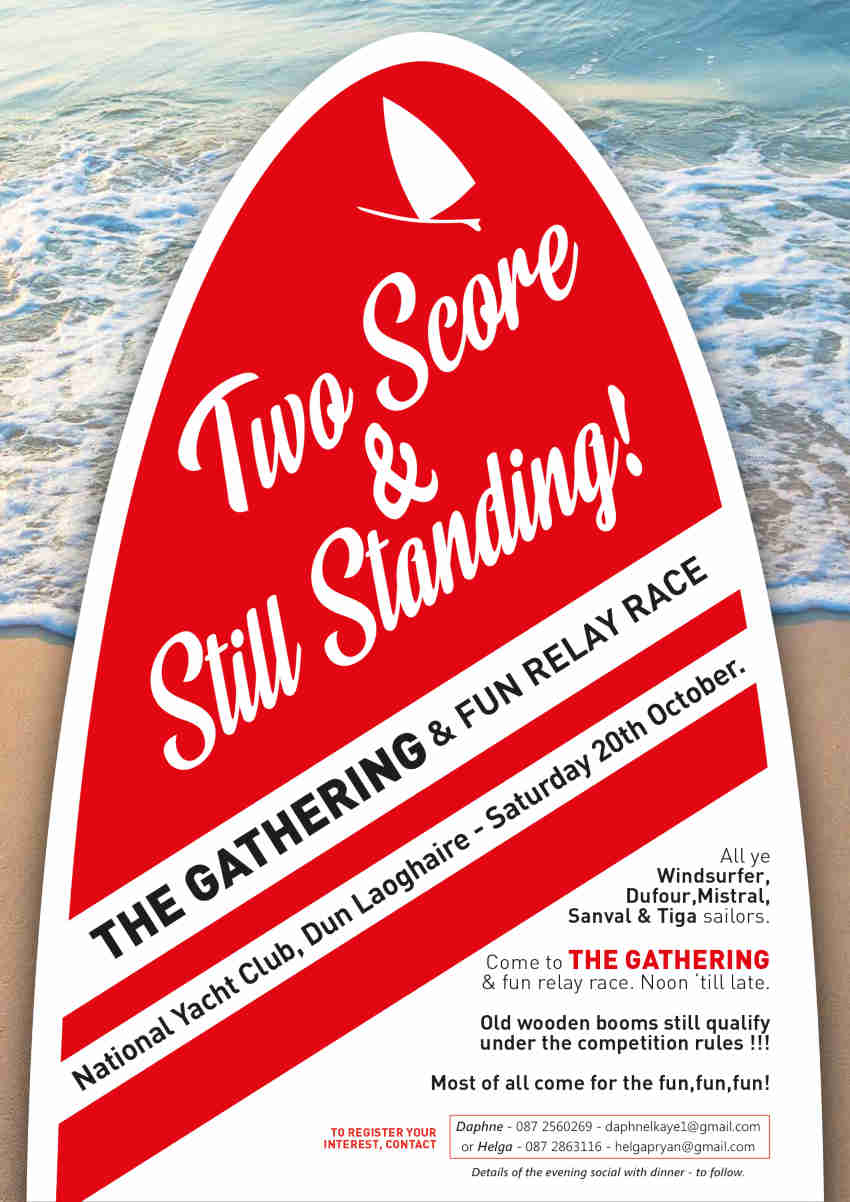
NYC’s Flying Fifteens Frostbite Series Takes Off Next Weekend
The National Yacht Club’s Frostbite Series for Flying Fifteens, sponsored by Mitsubishi Motors, kicks off next Saturday 6 October.
The five-race series runs till Saturday 17 November, with breaks for the October Bank Holiday and Lough Derg Regatta on 13 October.
Each Saturday will see two back-to-back races on the water of Dublin Bay.
The Notice of Race and sailing instructions are both available to download below or from the NYC website, where entries can still be made online.
National Yacht Club Sets Date For 2018 Winter Liftout
#NYC - Lift-out day on the National Yacht Club platform is scheduled for Saturday 13 October, weather permitting.
Platform space is limited and applications for keelboats should be returned as soon as possible, with a cheque made payable to the National Yacht Club and confirmation of intention by email to [email protected].
The winter storage application form should be returned by Wednesday 3 October at the very latest.
Applications for platform parking for dinghies this winter are also available on the NYC website.
Dinghies taking part in either the junior training sessions or the DMYC Frostbite series must complete the relevant form prior to bringing their boats back on the platform.
The club asks members to note that platform parking does not reopen before Saturday 20 October, as the boathouse still has to lift many keelboats on trailers and position them on the platform following the main lift-out.
Hugh O’Connor Wins 2018 Topper Ireland Championship Series
#Topper - Hugh O’Connor of the National Yacht Club was presented with the Topper Challenge Cup for the series last weekend at Rush Sailing Club.
Afloat.ie’s Junior Sailor of the Month for August amassed a string of impressive victories this season, including the second and third Traveller events, the Southern Championships and the O’Tiarnaigh Topper Challenge.
Ireland’s number-one Topper sailor also placed second in the Irish Nationals and Winter Championships — not to mention his stellar podium performance at the Topper Worlds in China.
Fellow NYC sailor Natasha Hemeryck was presented with the overall third place trophy in the series for 2018. Over the year, Hemeryck came in first in the Winter Championships, second at the Traveller 2 and Northern Championships and fifth at the Irish Nationals.
Caoimhe Seymour (NYC) came second overall for the series in the 4.2 Rig and was presented with her trophy at Rush Sailing Club, where the NYC was well represented for the fifth Traveller and last Topper event of the 2018 calendar.
Seymour maintained a consistent place through out the series, coming in third in the Irish Nationals, Winter Championships and Northern Championships, and first in the Traveller 4.
Meanwhile, NYC sailors in Rush included Seymour (third in the 4.2 rig), Adam Irvin, Eoghan Turner (second overall), Deirdre Turner, Mathew O’Brien Holohan and Hugh O’Connor, who finished third in the U17 amid challenging, windy and gusty conditions.
Sixty-two competitors signed up for the event, which the class association said was a fantastic number for the final Topper Traveller in the 2018 series.
National Yacht Club’s End Of Summer Race This Thursday
#NYC - The National Yacht Club’s end of summer season fun race takes place this Thursday evening 6 September.
The race is open to all yachts and dinghies owned or helmed by a member of the NYC. Entries are free of charge but the club will be taking the opportunity to run a fundraiser for Dun Laoghaire RNLI.
The start and finish shall be within the harbour between the bandstand and an inflatable mark. Races will be started by using Rule 26 with the warning signal five minutes before the start.
First gun will be at 6.30pm for dinghies, Moths, Mermaids and Flying Fifteens, followed by Ruffians, Shipmans and Cruisers 3 at 6.35pm; Beneteau 31.7s, Sigma 33s and Cruisers 5 at 6.40pm; and SB20s, mixed sportboats and Cruisers 0, 1 and 2 at 6.45pm.
The course will be shown on a noticeboard in the hall of the club prior to the race. Subject to suitable weather, it is planned to race from the harbour to a course in Dublin Bay and back.
Prizes will be awarded for line honours, class winners and on handicap at the complete discretion of the NYC Sailing Committee.


























